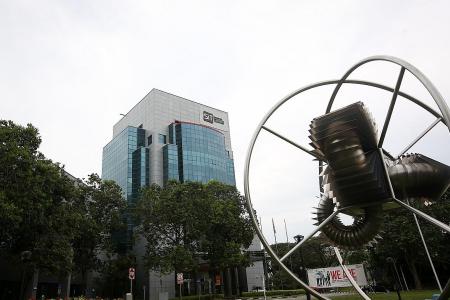Education: an effective pathway to manage disruptions
'Learning 360' and applied learning model will help workforce be ready for new jobs and meet future needs
Traditionally, schools prepare us for our first job, but the world around us is getting smarter.
You might already find yourself working alongside a robot or using artificial intelligence (AI) to make decisions. If the world around us is getting smarter, we need to get smarter, too.
Developing new skills is essential in a world of rapid technological change.
AI and robotics are two of today's disruptive technologies that are having a massive impact on the world's economy. If you use Google or Amazon, you have experienced AI.
Machines no longer do just "grunt work". Co-bots are robots designed to work alongside humans as professional partners.
Robots are not just found on the factory floor - they can also work alongside a surgeon engaged in precision microsurgery or suturing a patient.
Whether AI or robotics, they are reconfiguring our professions.
When tasks are automated, workers perform new tasks. But those new tasks require different skills.
Estimates are that one-third of the world's workforce will need to learn new skills or move into new occupations by 2030.
Nearly 10 per cent of positions will be in fields that do not exist today.
Higher education, the Government and businesses will be challenged to ensure that millions of new and existing professionals have the skills to support the transition to new positions.
With new technologies disrupting our professions in a fast-changing world, our notions of education have morphed as well.
Intellectual skills are a must, but so too are interpersonal skills.
Career mobility depends on skills such as critical thinking, problem-solving, communication and collaboration.
A complex world requires complex skills.
As a result, the concept of college as the primary source for educational qualifications is changing worldwide.
The era of "learning 360" has emerged.
LEARNING OPPORTUNITIES
Educational options are all around us - competency-based education, apprenticeships, internships, certificates, boot camps and badges are options.
Do-it-yourself learning opportunities are available online, all the time.
All of these options make it more convenient to keep up with rapid skill changes.
Singapore's economy has not been spared the disruptive technological changes, but the Government has rolled out several initiatives to restructure the economy and transform industries to meet future needs.
Tertiary education is going through a paradigm shift, and some exciting opportunities have also emerged from the disruptions.
The educational landscape is changing, especially in the way education is designed and delivered.
Education can no longer be front-loaded - it needs to be continuous and lifelong, relevant and flexible, while supporting the needs of working Singaporeans.
Singapore's tertiary education system is progressively shifting from a teaching-focused model to one that is competency-driven.
It is moving towards the applied learning model, whereby curriculum creation is demand-driven.
The Singapore Institute of Technology (SIT) is pioneering the applied learning model, which is defined by some experts as a practical approach supported by research to increase student motivation and provide real-world application.
A key pillar of SIT's learning model is the Integrated Work Study Programme (IWSP), which is flexibly designed to accommodate the needs of its industry partners.
Through the IWSP, SIT students are immersed in the working world for up to 12 months.
This programme enables undergraduates to work on real-life projects and is an effort to shift students' mindset towards a work-study continuum.
To date, over 500 SIT students from eight programmes have gone through the IWSP, with some 300 companies offering more than 1,200 positions.
Given that over 90 per cent of its student population are polytechnic graduates who are work-ready, SIT works with its industry partners to ensure its undergraduates are given real work assignments.
The IWSP becomes a win-win partnership and a worthwhile investment for companies in a future talent pipeline.
The success of applied learning in producing future-ready graduates hinges on the ability of the university to build deep and long-lasting industry partnerships.
Many of SIT's faculty members have invaluable industry experience and networks.
Besides working closely with employers on the IWSP, they continue to work as part-time consultants in their respective industry.
This seamless collaborative relationship between industry and academia results in an authentic learning environment for students.
The modern workforce needs to embrace the lifelong learning and "learning 360" mindset to effectively meet the new challenges from more disruptions in the coming years.
Professor Tan Thiam Soon is SIT president. Dr Diana Oblinger, is president emeritus of Educause in the United States. They spoke at the first Applied Learning Conference organised by SIT here.
Get The New Paper on your phone with the free TNP app. Download from the Apple App Store or Google Play Store now



